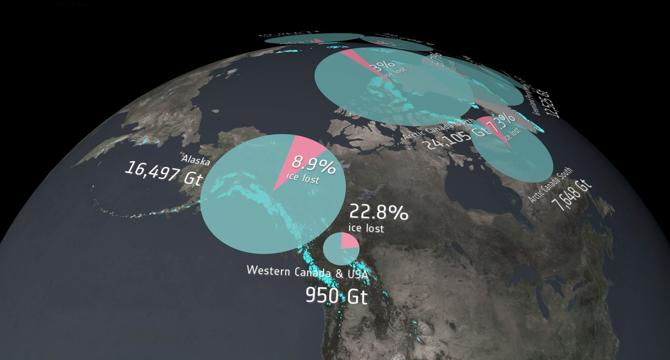Universe Today
1M
279

Image Credit: Universe Today
Glaciers Worldwide are Melting Faster Causing Sea Levels to Rise More
- Rising temperatures due to anthropogenic climate change are causing glaciers to melt at a faster rate, leading to various consequences like rising sea levels, coastal flooding, and drought risk.
- Research by the Glacier Mass Balance Intercomparison Exercise (GlaMBIE) team shows an alarming increase in glacier loss over the last decade.
- The study, published in Nature, utilized data from various satellite missions to track global glacier mass changes from 2000 to 2023.
- Glaciers lost 273 billion tonnes of ice annually, with regional losses ranging from 2% in the Antarctic to 39% in Central Europe.
- The rate of ice loss accelerated in the second half of the study, with glaciers contributing significantly to global sea-level rise.
- Glaciers collectively lost 6,542 tonnes of ice, leading to an 18 mm rise in global sea levels.
- The research provides a new observational baseline for studying the impact of glacier melt on water availability and sea-level rise.
- These findings are crucial for understanding the effects of climate change and developing strategies aligning with IPCC recommendations.
- The study aligns with the UN's focus on glacier preservation and highlights the need for collective action to address climate change.
- This research underlines the urgent need to address climate change and its impacts on glaciers and sea levels.
Read Full Article
16 Likes
For uninterrupted reading, download the app